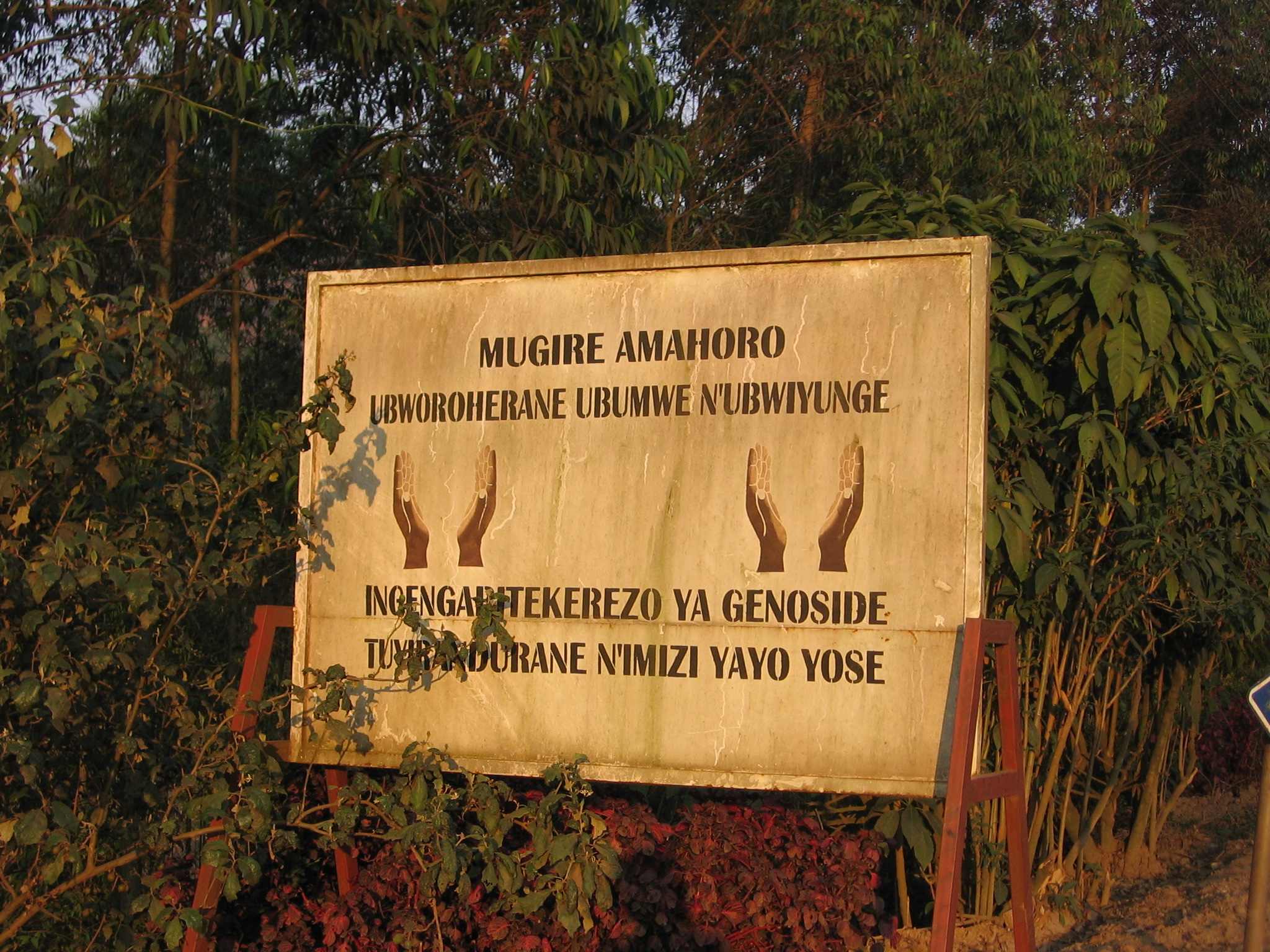July 5, 2009
In Rwaza, there was a sign on the town hall. The only words I recognized were “Murakoza Neza a Rwaza” (Welcome to Rwaza) and jenoside, spelled in contrasting red letters. I took a photo of the sign, as well as another along side the road. Shops and houses too along the road we took back to Kigali from Musanze had messages about the genocide stenciled on to them, near the roof, the same message over and over. The word jenoside was often painted in red, to accentuate the bloody meaning behind it.

Last night, I showed my host sister my photos from the trip and asked if she would translate the signs for me, which she did:
Welcome to the Rwaza district. You are welcome here. The people love you. May you stop thinking the genocide ideology.
and
Be at home, be peaceful. May you stop thinking the genocide ideology. Let’s have peace and reconciliation.
I haven’t seen signs like this anywhere else in Rwanda so far.
The concept of dignity plays a major role in Rwandan society today. Dignity is everywhere– in speeches at the Liberation Day celebration, on signs and billboards, and in every conversation it seems. Respect for human dignity. It’s reassuring that the government recognizes that human dignity had been lost, and has been working so hard to restore that. The main principles of human rights here are dignity, justice, and equality. It’s an interesting way of framing things. From my conversations with the Rwandan delegates, when asked which human right most mattered to them, the answer was invariably, the right to life, and the right to education. Thse seem to be the rights which have most egregiously been ignored here. It’s interesting though, because the right to life here means something very different than the right to life in US dialog. Here it means the right to live and not be killed by your neighbor. In the US, the right to life is more of an abortion/euthanasia concern. Aside from some of the roughest urban areas, most people in the US don’t have to wonder if they will survive the violence around them to see the next day.
The other thing that I find really striking here is the emphasis on progress and moving forward. There is an enormous push to have the latest technology. Most everyone– aside from the absolute poorest– has a cell phone (many people have more than one) and texting is the main form of communication. My friend Sarah’s host family didn’t have running water, but they did have an incredible entertainment system– television, stereo, laptop– and her host sister had seen every episode of Lost and 24. Which is more than I can say, having never watched either of those shows myself. The technology is here, but the basic infrastructure is not.
